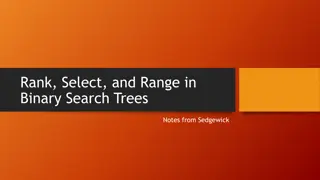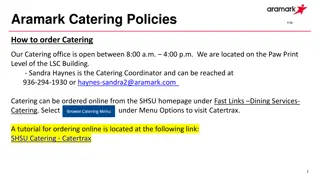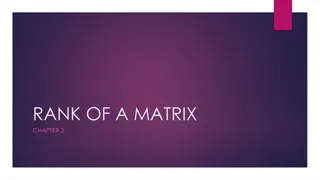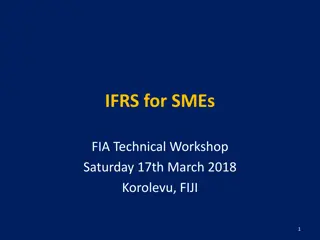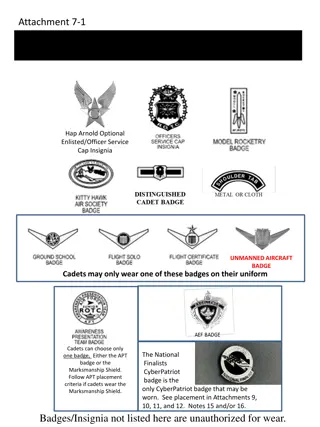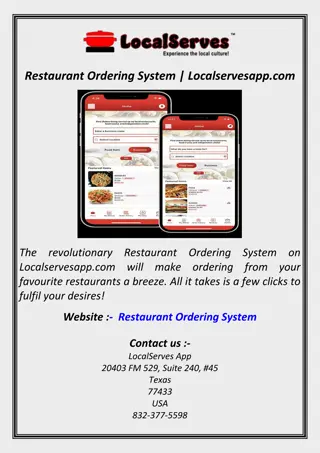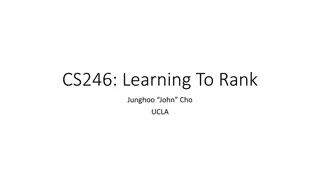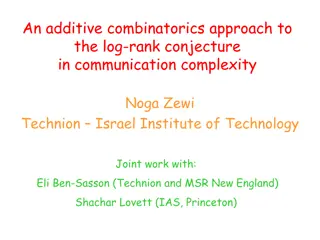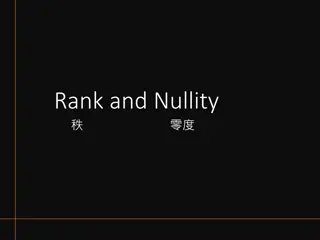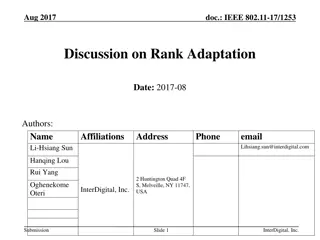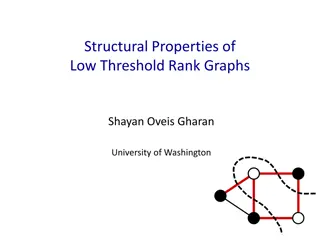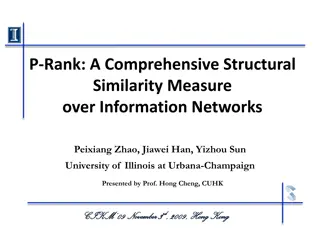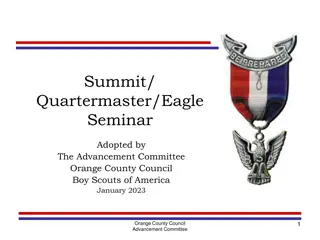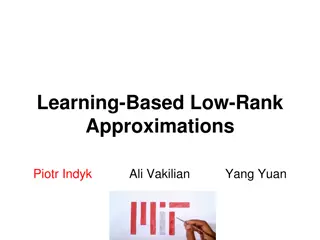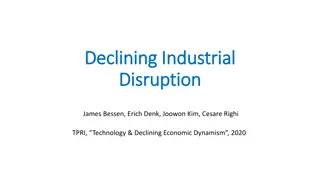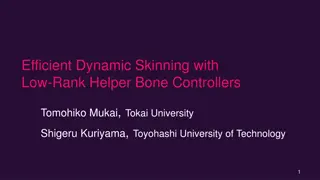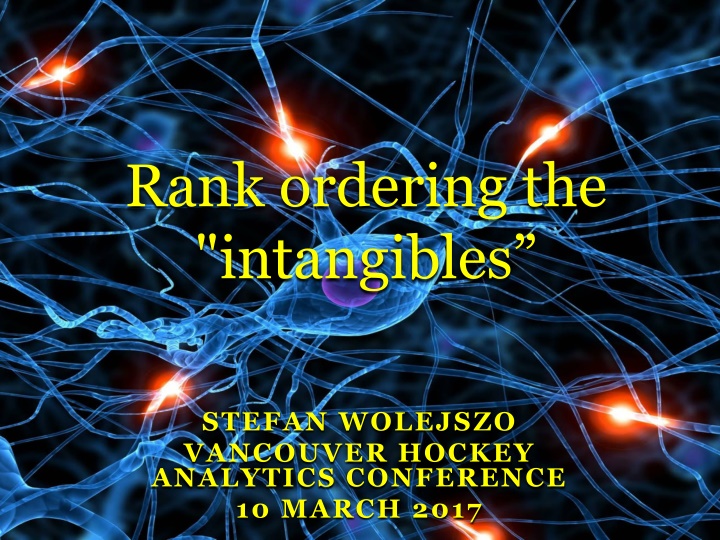
Ranking Intangibles and Psychosocial Dynamics in Hockey Analytics Conference
Explore the importance of intangibles such as cognitive fatigue, resilience, leadership, motivation, and grit in hockey analytics. Learn about measuring and ranking intangibles for teams, focusing on five key criteria and psychosocial factors. Discover empirical research on cognitive fatigue and its impact on performance, with historical trajectories in WWII pilots.
Download Presentation

Please find below an Image/Link to download the presentation.
The content on the website is provided AS IS for your information and personal use only. It may not be sold, licensed, or shared on other websites without obtaining consent from the author. If you encounter any issues during the download, it is possible that the publisher has removed the file from their server.
You are allowed to download the files provided on this website for personal or commercial use, subject to the condition that they are used lawfully. All files are the property of their respective owners.
The content on the website is provided AS IS for your information and personal use only. It may not be sold, licensed, or shared on other websites without obtaining consent from the author.
E N D
Presentation Transcript
Rank ordering the "intangibles STEFAN WOLEJSZO VANCOUVER HOCKEY ANALYTICS CONFERENCE 10 MARCH 2017
Measuring intangibles Measuring and collecting empirical data typically outperforms the eye test Social scientists have measured intangibles for a long time At some point a team may allow someone access to collect (limited) data Question: If I was asked which variables to measure to get the most bang for the buck which would I pick?
The 5 criteria Five criteria will be used 1) Conceptual clarity: definitions are clear and consistent 2) Empirical research: evidence outside of hockey 3) Elite occupations: research is with elite occupation groups 4) Practicality: possible to collect meaningful data 5) Applicability: teams can use results to improve Each will be coded as follows: Strong evidence (green) 2 points Some issues Problematic - (yellow) 1 point (red) 0 points
Psychosocial dynamics There are many psychosocial factors Focus on five of them: a) Cognitive Fatigue b) Resilience c) Leadership d) Motivation e) Grit
Cognitive Fatigue Cognitive fatigue (AKA mental fatigue) refers to being mentally taxed from concentrating on a task for a long period of time Errors, taking poor risks, loss of concentration, impaired memory, less willing to exert self to reach rewards (intrinsic motivation) Has been empirically researched since 1880s (students) Doctors (surgeons), pilots, astronauts
Cognitive fatigue trajectories in WWII pilots (Davis 1946)
Cognitive Fatigue (9/10) Conceptual clarity Surveys calibrated with physical testing ( time on task and cognitive load ) Change in player and team routines to reduce errors Identifying warning signs of cognitive fatigue Improve performance while reducing injuries Empirical Research Elite Occupations Practicality Applicability
Resilience Resilience refers to having good outcomes in the face of adversity Unclear whether it is a trait, a process, or both Potential Traumatic Events (PTEs) can be chronic or isolated Researched since 1970s (schizophrenia) Mainly children and people with disabilities, but also doctors, military, high performance athletes
Prototypical outcome trajectories (Bonanno and Diminich 2013)
Resilience (8/10) Conceptual clarity Survey and interview methods Tough guy not conducive to data collection (frame as what pisses you off ) Identify players who need help with building resilience (sports psychologist) Empirical Research Elite Occupations Practicality Applicability
Leadership Generally thought of as the ability to motivate people to willingly do the things you want them to do (dozens of types of leadership) Not always conceptually distinct from influence Is it a trait or a process? (i.e. great man versus multi-level network approaches) Thousands of empirical articles of varying quality Research in business has mixed results, but shown to be important in some organizations (e.g. military)
Leadership (6/10) Surveys and interviews Process of developing leadership is long, players with teams for a short time Very limited ability to meaningfully act on results Better used for evaluating rather than directing process Conceptual clarity Empirical Research Elite Occupations Practicality Applicability
Motivation Initiates and guides goal-orientated behaviors Divided into intrinsic motivation (internal) and extrinsic motivation (rewards and punishments) Studies of motivation (willpower) have been around for a lot longer, but resurgence in the 1970s Commonly in education and individual sports (tennis, fencing, skiing) There is evidence of a motivation funnel where as you move through higher levels motivation goes up while SDs drop
Motivation clusters in professional tennis players (Gilbert et al 2013)
Motivation (6/10) Conceptual clarity Survey instrument already exists (Sports Motivation Scale, Luc Pelletier at U Ottawa) Can provide a very limited amount of new information about a player Empirical Research Elite Occupations Practicality Applicability -
Grit Recent concept defined in different ways, but common theme include perseverance, character strength, and passion Perseverance is similar to resilience and/or motivation in many respects Research most commonly in education Minimal amount in elite groups: West Point and Beast Barracks, high level spelling bees
Grit (5/10) Conceptual clarity Duckworth s grit scale would need to be re- worked in hockey context Small potential to produce new information Best use is to measure trade off between grit and skill-based measures Empirical Research Elite Occupations Practicality Applicability
Scorecard Psychosocial Factor Score Cognitive Fatigue 9/10 Resilience 8/10 Leadership 6/10 Motivation 6/10 Grit 5/10
Conclusion Intangibles can be measured Key shift from do intangibles matters to how much does a given intangible matter May have limited opportunity to do this type of research with professional hockey teams Need to make our best bet about which metrics will matter most and help to improve the team Cognitive fatigue and resilience are the best choices Others need work before they can be of good use

